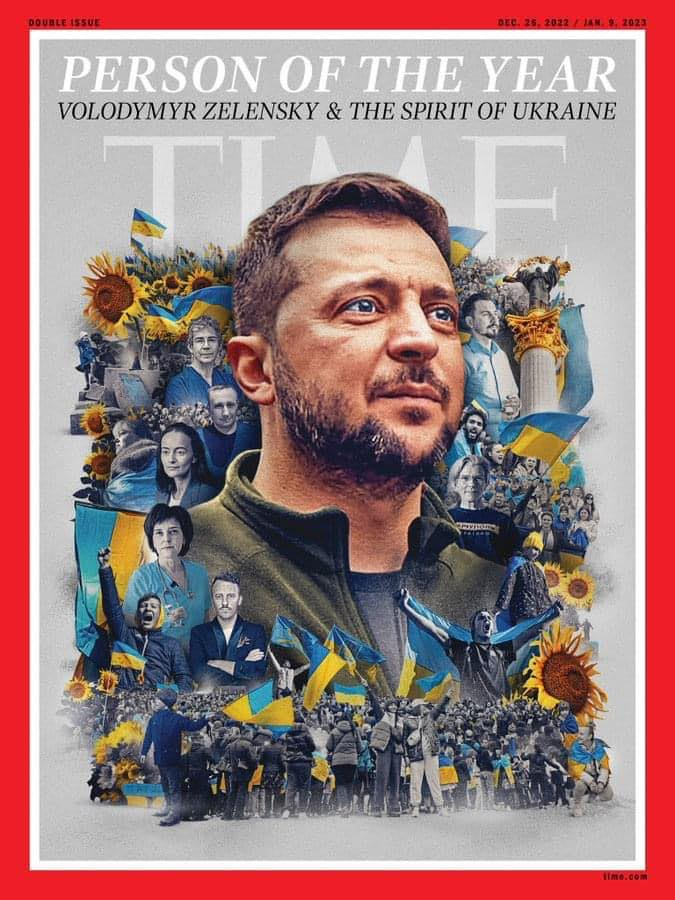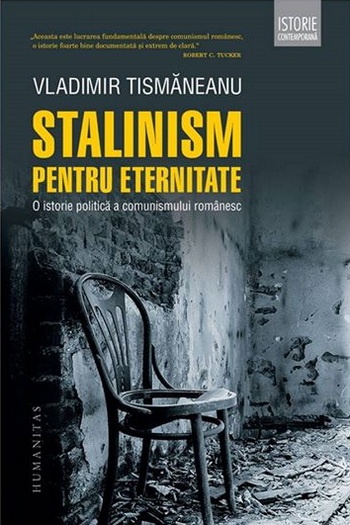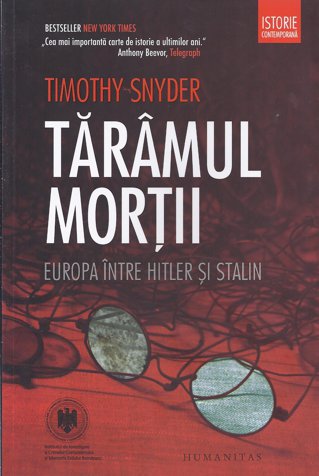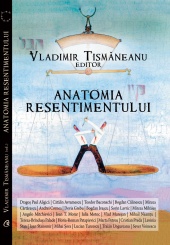
A President for All Seasons
10/12/2022Istoria onoarei la români: Doina Cornea, adevărul și libertatea
07/05/2018De una singură, în acele vremuri sumbre, fragilă, dar invulnerabilă, Doina Cornea a sfidat inepta, umilitoarea tiranie. Noblețea spiritului se logodea în cazul acestei admirabile Doamne cu un curaj calm și consecvent.
Transmise la Radio Europa Liberă, textele ei, limpezi precum apa unui izvor din munți, erau ascultate de milioane de români. Erau lecții morale, îndemnuri la renasterea spiritului civic.
A înțeles repede ce era FSN-ul, a intuit perfect strategiile neo-comuniste. A fost una din țintele infamei propagande stalino-fasciste. Era atașată ideilor și partidului lui Iuliu Maniu si Corneliu Coposu. A fost un om adevărat care a trăit în adevăr. A luptat pentru libertate și a trait ca un om liber. Să se odihnească în pace!

Hero, martyr, moral beacon
04/04/2018Splendoarea adevărului
16/12/2017Acesta este titlul unei cruciale enciclice promulgată de Papa Ioan Paul al II-lea in august 1993. Mihai I, monarhul constituţional al României, a intruchipat această spendoare. A apărat libertatea umană, legea divină şi legea naturală. Moştenirea spirituală a acestui Rege este universală.
„Cu neclintită credinţă în viitorul nostru, animat de acelaşi devotament şi dorinţă de a munci, voi continua să servesc poporul român, de care destinul meu este legat inexorabil.” – Regele Mihai I, Londra, 4 martie 1948

Panteonul onoarei: In memoria Regelui Mihai
05/12/2017Aduc aici un omagiu celui care a apărat, in condiții de maxima vitregie, verticalitatea morală și curajul civic. Regele Mihai a fost simbolul continuității constituționale a statului român. Viața nu a fost deloc blândă cu acest om atât de blând. A avut un admirabil curaj in cateva situații extrem de dificile: arestarea dictatorului Ion Antonescu (cu trupele germane aflate in București) si greva regală declanșată ca protest impotriva abuzurilor nerușinate ale PCdR, la porunca directă a lui Stalin. A reprezentat o efigie a unei speranțe care refuza să sucombe timpurilor de mizerie sufletească și materială numite “construirea socialismului in România”.
Mai presus de orice, era un mare si consecvent iubitor al dreptătii. Detesta opresiunea, injustitia, șovinismul, orice formă de exclusivism. A fost constrâns să abdice prin diktatul agentilor lui Stalin din România. Așa-zisa abdicare din decembrie 1947 a fost de fapt o lovitură de stat, un act criminal, ilegitim si ilegal. Urmasii celor care l-au inlăturat pe Rege si au distrus democrația din România vor vărsa acum lacrimi de crocodil. Le spunem direct și fără echivoc: Sunteți niște răi si niste fameni, lăsați-l in pacea plecării către veșnicie, nu va imbulziți lângă catafalc…
L-am intâlnit de mai multe ori, am purtat discutii despre tulburata istorie a Europei de Est in veacul XX. Era calm, nu simteai nici cea mai mică urmă de ranchiuna, de resentiment. Asemeni Reginei Ana, era convins că reconcilierea trebuie să se bazeze pe căință, nu pe răzbunare. Mă inclin cu imens respect si spun: Să se odihneasca in pace, o binemerită!
Articol transmis la postul de radio Europa Libera
In memoriam Virgil Ierunca
28/09/2017Why does Virgil Ierunca matter? Because in times of dishonesty and cowardice, he was honest and courageous. Because in times of capitulation, he refused to tremble, to waver, and to bow. Because he had a hierarchy of values which has turned out to have been the right one. He passed away on September 28, 2006. He was a member of the Presidential Commission for the Analysis of the Cmmunist Dictatorship in Romania. Together with his wife and closest friend, Monica Lovinescu, he was the voice of hour hope. Whenever people tell me that we did not have a Milosz, a Camus, or a Havel, I respond that they are wrong. We had Monica and Virgil. Blessed be their memory and may we live up to their legacies!
Hope, wonder, humility…
14/08/2017Minima moralia: “August 14, 1982. Dear Olga, Orientation toward Being as a state of mind can also be understood as faith: a person oriented toward Being intrinsically believes in life, in the world, in morality, in the meaning of things, and in himself. His relationship to life is informed by hope, wonder, humility, and a spontaneous respect for its mysteries. He does not judge the meaning of his efforts merely by their manifest successes, but first of all by their ‘worth in themselves’ (i.e., their worth against the background of the absolute horizon).”– Václav Havel, “Letters to Olga,” 1982

Un erou al luptei pentru drepturile omului: In memoriam Liu Xiaobo (1955-2017)
13/07/2017A terribly sad day for all the friends of an open society…
“Freedom of expression is the foundation of human rights, the source of humanity, and the mother of truth. To strangle freedom of speech is to trample on human rights, stifle humanity, and suppress truth.” (Liu Xiaobo, “I Have No Enemies: My Final Statement,” Nobel Lecture in Absentia, December 10, 2010, Statement of December 23, 2009, read by Liv Ullmann)
Răscrucile insângerate…
21/05/2017Dacă cineva mi-ar cere să numesc un intelectual critic român, un om care s-a aventurat in spaţiul ideilor, dar şi al politicului, in polemici de o mistuitoare şi periculoasă intensitate, şi care a apărat public valorile democratice, plătind cu viaţa pentru angajamentul său, l-aş numi pe Ioan Petru Culianu. Binecuvântată să-i fie amintirea!

The History of Jewish Honor
19/04/2017In October 1939, the Schutz Staffeinel (SS) began to deport Jews living in Austria and Czechoslovakia to ghettos in Poland. Transported in locked passenger trains, large numbers died on the journey. Those that survived the journey were told by Adolf Eichmann, the head of the Gestapo’s Department of Jewish Affairs: “There are no apartments and no houses – if you build your homes you will have a roof over your head.”
In Warsaw all 22 entrances to the ghetto were sealed. The German authorities allowed a Jewish Council (Judenrat) of 24 men to form its own police to maintain order in the ghetto. The Judenrat was also responsible for organizing the labour battalions demanded by the German authorities. Conditions in the Warsaw ghetto were so bad that between 1940 and 1942 an estimated 100,000 Jews died of starvation and disease in the Warsaw Ghetto.
Anielewicz returned to Warsaw where he attempted to organize resistance to the Nazi occupation and in November 1942 was elected as chief commander of the Jewish Fighter Organization in the ghetto.
Between 22nd July and 3rd October 1942, 310,322 Jews were deported from the Warsaw ghetto to extermination camps. Information got back to the ghetto what was happening to those people and it was decided to resist any further attempts at deportation. In January 1943, Heinrich Himmler gave instructions for Warsaw to be “Jew free” by Hitler’s birthday on 20th April.
Anielewicz now played a prominent role in organizing resistance in Warsaw. On 19th April 1943, the Waffen SS entered the ghetto. Although though only had two machine-guns, fifteen rifles and 500 pistols, the Jews opened fire on the soldiers. They also attacked them with grenades and petrol bombs. The Germans took heavy casualties on the first day and the Warsaw military commander, Brigadier-General Jürgen Stroop, ordered his men to retreat. He then gave instructions for all the buildings in the ghetto to be set on fire.
As people fled from the fires they were rounded up and deported to the extermination camp at Treblinka. The ghetto fighters continued the battle from the cellars and attics of Warsaw. On 8th May the Germans began using poison gas on the insurgents in the last fortified bunker. About a hundred men and women escaped into the sewers but the rest were killed by the gas, including Mordechai Anielewicz.
See More




 Posted by tismaneanu
Posted by tismaneanu 



































